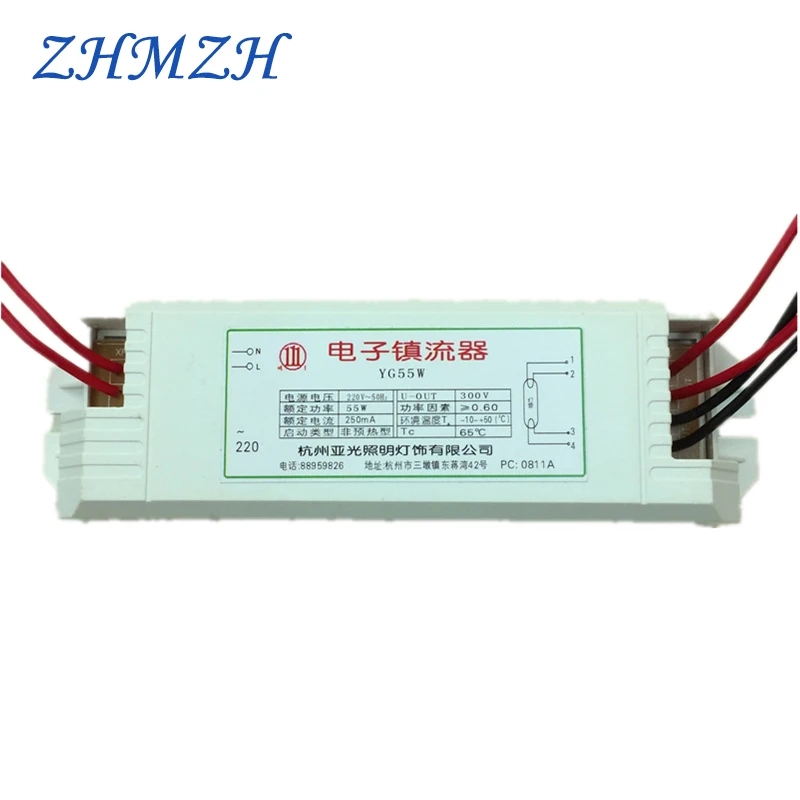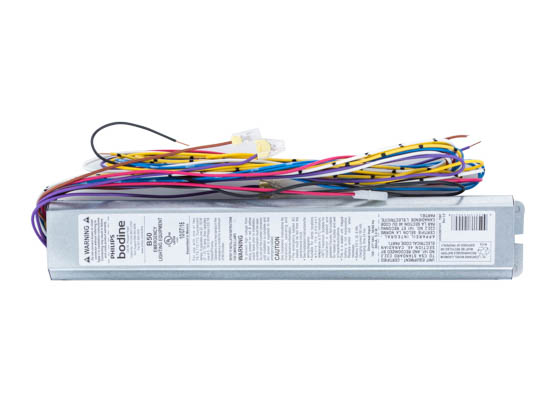
RS Components überzeugt durch langjährige Erfahrung und hohe Qualitätsansprüche! Serviceleistungen hier! All fluorescent light fixtures consist of at least lamp(s), lamp holders, ballast and internal wiring.

Some older types have starters, too. In time, the ballast may need to be replaced. A device required by electric-discharge light sources such as fluorescent or HID lamps to regulate voltage and current supplied to the lamp during start and throughout operation. An electric lamp that produces light from gas atoms excited by an electric current.
In a fluorescent lighting system, the ballast regulates the current to the lamps and provides sufficient voltage to start the lamps. Without a ballast to limit its current, a fluorescent lamp connected directly to a high voltage power source would rapidly and uncontrollably increase its current draw. Easy to replace with a new one of the same wattage, or not much more for a complete.

When a fluorescent bulb first starts up, it needs more energy to light up than it does to keep itself running. So they help save the lifetime of. For fluorescent lights to work they have what is called a ballast in them.
Most likely this is where your buzzing noise is coming from. What is the ballast in a fluorescent light ? Because your home’s mains power has a high. A basic inductor consists of a coil of wire in a circuit, which may be wound around a piece of metal. Electricity first enters the light fixture, like a troffer, and through a ballast.

A fluorescent fixture requires a ballast to send the proper amount of electricity to the fluorescent bulbs. Photos and show how to remove the old ballast from the fluorescent light fixture. The ballast –– which regulates voltage, current, etc.
Confirm that the new ballast matches the old one (photo below) and then install it as shown in Photo 4. After mounting the new ballast , replace the ballast compartment cover and bulbs, and it should be good for another years. A lighting ballast is a piece of equipment required to control the starting and operating voltages of electrical gas discharge lights. Examples of gas discharge light sources include fluorescent and neon lights and high-intensity discharge (HID) lamps.
The term lighting ballast can refer to any component. Ballasts vary greatly in complexity. Shop today at TLC Electrical! A magnetic ballast (also called a choke) contains a coil of copper wire.
The magnetic field produced by the wire traps most of the current so only the right amount gets through to the fluorescent light. That amount can fluctuate depending on the thickness and length of the copper wire. Without this ballast , there would be nothing to regulate the increasing current and the bulb would burn out in seconds once the lamp was turned on. A fluorescent lamp, or fluorescent tube, is a low-pressure mercury-vapor gas-discharge lamp that uses fluorescence to produce visible light. An electric current in the gas excites mercury vapor, which produces short-wave ultraviolet light that then causes a phosphor coating on the inside of the lamp to glow.
Electronic ballasts for Tlamps have recently been introduced to replace magnetic ballasts. In the old days, magnetic ballasts were the standard. Most required a starter to finish the job of talking to the bulb. It is these magnetic ballasts that cause most humming sounds in a fixture, as well as the delay and flicker when a fluorescent light is turned on. They are relatively inexpensive to.
Standard fluorescent lighting fixtures are more energy-efficient than incandescent light fixtures , and the bulbs generally last considerably longer, but occasionally a special transformer inside the fixture, called a ballast , may need replacing. The type of ballast in the fixture will depend on the age of the light fixture. Guaranteed UK Next Day Delivery! n Sie Light ing ballasts ?
No comments:
Post a Comment
Note: only a member of this blog may post a comment.